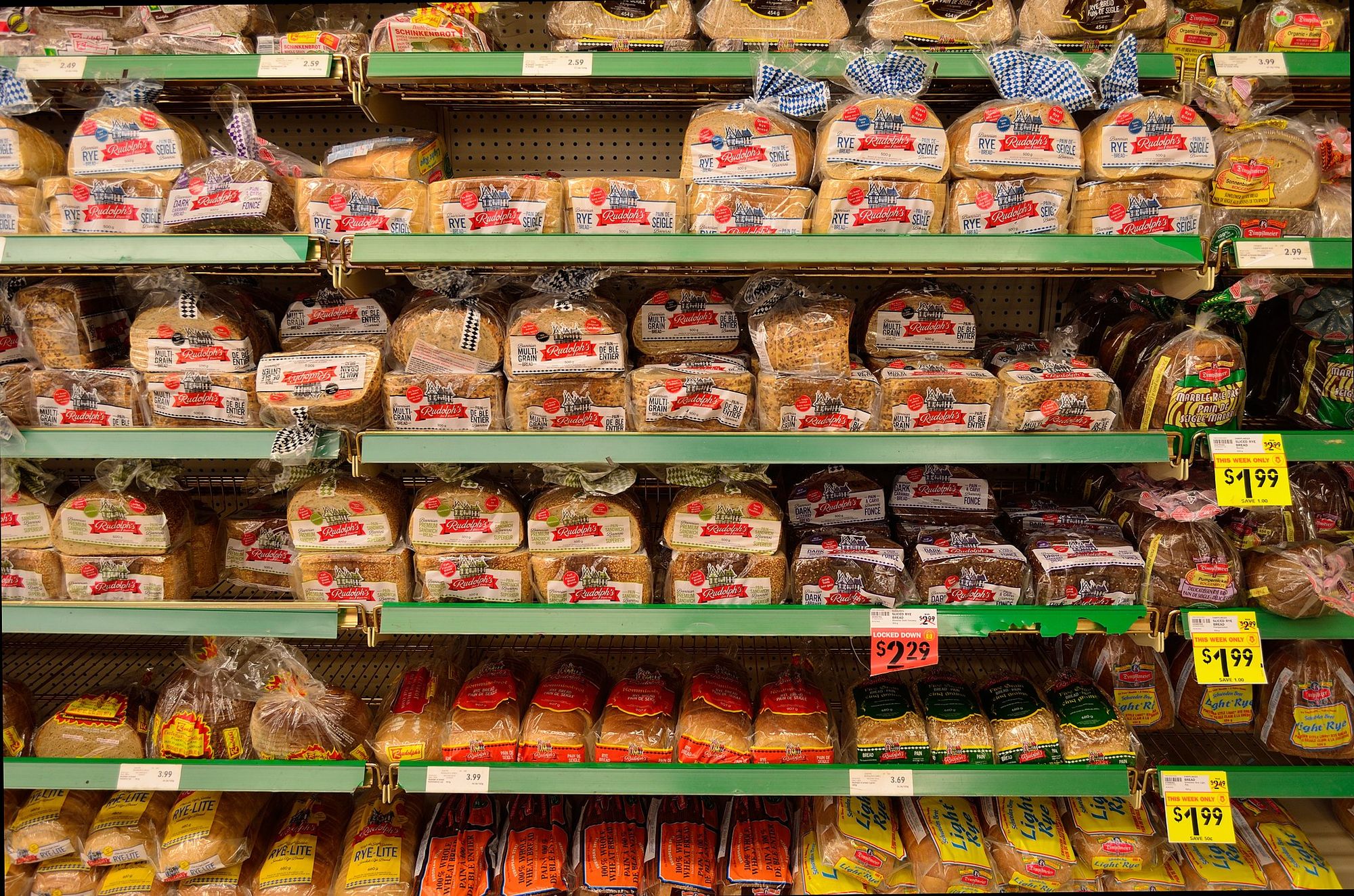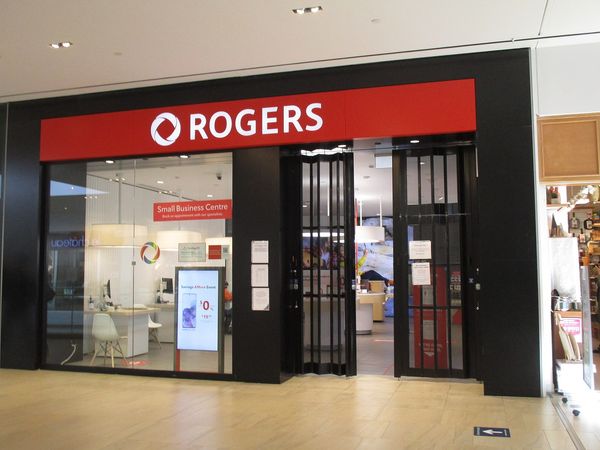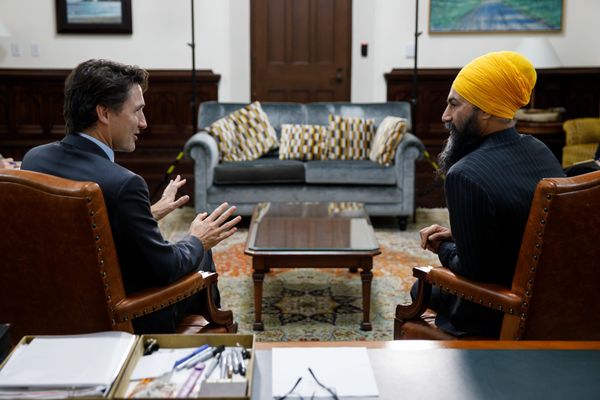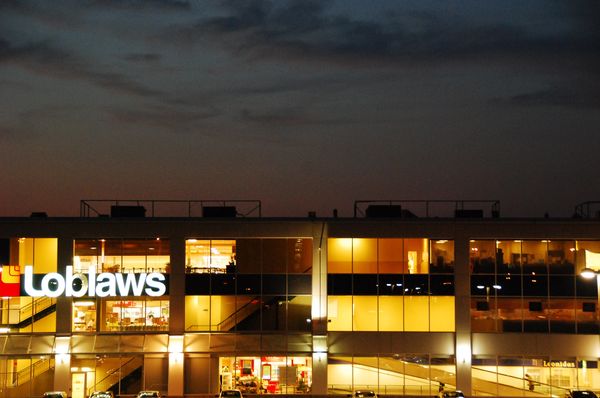The Competition Bureau may be one of the least useful, yet most important, organizations in Canada.
It’s ostensibly the federal institution that ensures industries and corporations are playing fair, but it does so with a level of secrecy that benefits the players it’s supposed to be keeping in line.
The way it has handled the explosive revelation that one of Canada’s biggest food companies, owned by one of the country’s richest families, has been under investigation for participating in a massive scheme that took money from us to pad the profits of the rich is perhaps the most stark example of this.
In 2017, the Competition Bureau announced it had initiated an investigation of the country’s biggest grocery stores — including Sobeys, Metro, Giant Tiger and Walmart — for allegedly colluding to keep the price of bread artificially high. This plan increased the level of profit for grocery stores across the country, and cost the average household an estimated $400 over the course of 15 years. No charges have actually been laid, and none of the allegations of price fixing have been proven in court.
After years of playing both the producing and selling side of the scheme, Loblaw, the parent company of the grocery stores and Weston bakeries, turned snitch, admitting its guilt and helping the government nail down the other players. Since then, very little that we know about has happened.
Big Competition Bureau cases take ages — years, typically. But the agency essentially goes quiet once it makes its first moves, like a submarine slipping back beneath the waves, pulling its periscope down after a quick peek at the world above. As a result, what often becomes hidden from the public are the ongoing court battles raging behind the scenes.
That was the case here, until last week when The Tyee reported the Bureau’s investigation might have expanded beyond just fixing the price of bread.
In March 2007, The Tyee reports, Maple Leaf Foods president and CEO Michael McCain sent an email containing the following information:
- McCain spoke with Metro CEO Paul del Duca
- They discussed co-ordinating grocery prices to hose the public
- Del Duca “vigorously” agreed with collectively setting the price of bread
- Del Duca and Metro were “aligned” with the idea, even for meat products, suggesting the price coordination might extend beyond just bread.
The Competition Bureau obtained this email in their investigation, and used it, among other evidence, to get a warrant to search Maple Leaf’s offices, bringing them into the investigation.
This raid ended up taking place in spring 2019, and the Bureau took two laptops and six USB sticks from Maple Leaf’s office. Maple Leaf then asked the court to suppress all these materials, claiming they’re covered under privilege and shouldn’t be used in court. That fight is still ongoing, but the documents were unsealed only recently, and The Tyee got a hold of them.
Once the documents were unsealed, there was no announcement from the Bureau, no public update as to where their investigation was at and no mention they’d raided Maple Leaf’s offices.
This is due in large part to the law that created the Bureau, the Competition Act, which is written in such a way that it severely limits what it can say, especially if a commissioner is unwilling to push those boundaries, as is the case now.
There’s a related issue here, which the Bureau doesn’t have direct control over: massive cuts to the media. There are barely enough reporters to cover city halls or legislatures across the country, never mind skulking around the halls of the higher courts on the off chance they will stumble upon a major Competition Bureau case hearing.
This means that when the Bureau is in court fighting for documents or reporting to a judge, there’s no one there to see it. The Tyee reporter, Bryan Carney, had to chase down the documents himself after learning of their existence.
The companies also have no interest in publicizing the fact they’re under investigation; they have every reason for this to not become public. Maple Leaf’s handling of the office raid is a great example.
Tucked in at the bottom of a May 2020 financial filing, the company makes an oblique mention of their status as suspects in the Bureau’s investigation: “With the expansion of Competition Bureau’s investigation over the years, Maple Leaf Foods has recently been advised that the Competition Bureau has formed the view that it should be considered a subject of the investigation.”
This is a pretty funny way of saying ‘our offices were raided by federal investigators and they took a bunch of evidence we’ve been fighting to keep under wraps.’
The Bureau’s issues go beyond its inability, or unwillingness, to speak, as it’s also severely underfunded and lacks critical powers to fight collusion between corporations.
The short-lived pandemic pay that grocery stores offered its employees was abruptly cut short last June. Several of the big players in the bread price fixing scandal — Sobeys, Metro, Loblaws — announced on the same day that they’d drop the bonuses.
According to a House of Commons report out this month, they had all emailed one another confirming each chain was also going to be dropping the practice. (The companies said the decisions were made internally before they contacted their competitors. It functionally doesn’t matter if that’s true though, as they communicated beforehand and dropped their wages all at once either way.)
Even if this is unethical, and even if it was some kind of collusion, under Canadian competition law it’s not actually illegal: In 2009, the law was amended to remove the word “purchase” from the Act.
“Agreements between competitors with respect to things such as wage fixing and no-poach agreements are not captured by the Competition Bureau’s criminal powers,” Commissioner of Competition Matthew Boswell told the Industry committee.
Boswell said the Bureau’s budget is 10 per cent lower in real dollars than 10 years ago, they have fewer staff than 15 years ago and it’s the “least funded” agency among peer nations.
This only makes it more imperative that the Bureau be upfront about where it is in the investigations it’s able to launch. A press release with the basic info that, ‘Hey! We’re in court this week,’ is the very least they could offer, as it’s hard to believe they’re working in the public’s best interest when everything is done in private. The law regarding what the Bureau can say should be changed to make this possible.
Dropping the secrecy mandate, and guaranteeing the Competition Bureau is truly independent with a budget and powers to match, is what’s necessary to make competition law remotely credible. Until then, we’re at the mercy of corporations working together as they please.







Member discussion